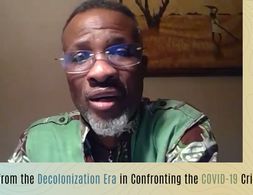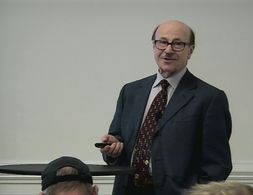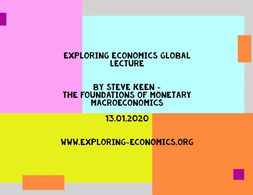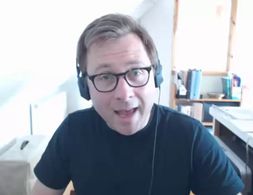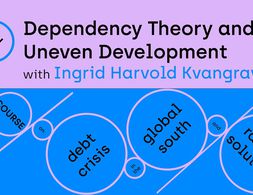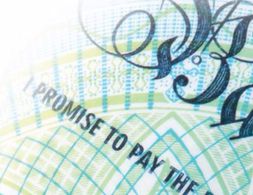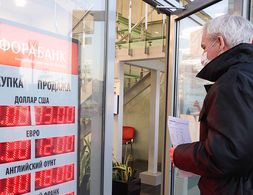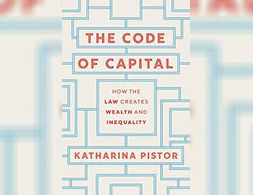✕
296 results
More than a century after Hartley Withers's "The Meaning of Money" and 80 years after Keynes's "Treatise on Money", the fundamentals of how banks create money still needs explaining and this book meets that need with clear exposition and expert marshalling of the relevant facts.
The 2007–08 credit crisis and the long recession that followed brutally exposed the economic and social costs of financialization. Understanding what lay behind these events, the rise of “fictitious capital” and its opaque logic, is crucial to grasping the social and political conditions under which we live. Yet, for most people, the operations of the financial system remain shrouded in mystery.
Macroeconomics in Context: A European Perspective lays out the principles of macroeconomics in a manner that is thorough, up to date, and relevant to students. With a clear presentation of economic theory throughout, this latest addition to the bestselling "In Context" set of textbooks is written with a specific focus on European data, institutions, and historical events, offering engaging treatment of high-interest topics, including sustainability, Brexit, the euro crisis, and rising inequality. Policy issues are presented in context (historical, institutional, social, political, and ethical), and always with reference to human well-being.
This article explores if power dynamics in the household can be changed, and if so, how. In this context the focus is laid on government childcare policy and its various channels of possible influence.
Dependency in Central and Eastern Europe - Self-reliance and the need to move beyond economic growth
In this essay, the author takes a critical perspective on the pursuit of growth as the solution for providing for environmental sustainability and economic stability in the countries of Central and Eastern Europe.
Drawing from the framework of dependency theory and presenting brief insights into European core-periphery relations the author then argues for the implementation of an alternative strategy to development that is built around the concept of self-reliance.
Deforestation is estimated to be responsible for about 12-29% of global greenhouse gas emissions. This essay will explore ecological economics as an alternative lens through which to approach forest conservation and the acceleration of climate change.
A historical glimpse of how economists of the 19th century debated the usefulness of mathematics to economics
This paper is a product of an online workshop held in Nigeria on the topic Unemployment: Policy Review and Recommendations. It explores the various unemployment policies introduced by the Nigerian Government and analysis how effective they are and suggests some practicable solutions to solving unemployment problems in the country.
The workshop was organized by Rethinking Economics The Uploaders (RETU) as part of the project Solving the Major Economic Problem in Nigeria (SMEPN), an output of the Global Pluralist Economics Training (GPET).
More details here: https://www.retheuploaders.org/programs/SMEPN
In this overview paper, Laura Porak reviews the history of industrial policy in the European Union before the background of a Cultural Political Economy approach.
Tetteh Hormeku-Ajei, member of the Post-Colonialisms Today Working Group, discusses the role of the state in Africa during the COVID-19 pandemic.
Happy International Women s Day This International Women s Day 2018 is an opportune moment to highlight prominent scholars of Feminist Economics As a subdiscipline of economics Feminist Economics analyzes the interrelationship between gender and the economy often critiquing inequities and injustices perpetuated by mainstream paradigms Work of this nature …
This course focus on the behaviour of individuals from an pluralist economic and an interdisciplinary bevavioural science apprach.
The module is designed to first present some of the main schools of thought from a historical and methodological perspective. Each week we explore and critically assess the main tenants of each school of thought. In the second part of the module we link history of economic thought and methodology to a specific and contemporary economic question. The second part allows you to engage with current economic issues with an awareness of methodology and methodological differences and with some knowledge of the history of economics.
Economist and 2020 Balzan Prize winner for Environmental Challenges: Responses from the Social Sciences and Humanities, Joan Martínez Alier, speaks on the importance of ecological economics and its timeliness around the 2007/2008 global financial crisis. He speaks on the importance of building the field of ecological economics “from the ground up” through praxis.
Maria Nikolaidi on how Minsky’s theory has been modelled over past decades and how one can use these models in order to analyse contemporary issues such as financial fragility and financial instability caused by climate change.
Donald Trump won in 2016 largely because enough voters in three states, all in the Rustbelt, which had voted for Barack Obama in both 2008 and 2012, switched their electoral votes from Democratic to Republican.
As part of the 2019/2020 Exploring Economics Experience, one of our supporters Prof. Steve Keen gave a presentation to our editorial team. Read more
To prevent the coronavirus shock to demand precipitating a long-lasting depression, government needs to become short-term payer of last resort.
An analysis of the modern neoliberal world, its characteristics, flaws and planetary boundaries aiming to end new economic politics and support a global redistribution of power, wealth and roles.
In this online lecture, economist and Professor at the School of Oriental and African Studies (SOAS), London, UK. Costas Lapavitsas, explains the limitations of the neoliberal market in creating financial stability and growth in both, developing and developed countries.
In the fifth part of the Economics of COVID-19 Webinar by SOAS, Jo Michell sketches out the effects of the COVID-19 pandemic on the wider macroeconomy and warns against a resurgence of austerity politics.
A detailed introduction into dependency theory that rethinks its relevance to modern development challenges.
Fighting Neoliberalism with Keynes & Minsky? Riccardo Bellofiore proposes to revise the insights of Minsky's financial instability hypothesis, combining it with the Keynesian theory of the monetary circuit to answer many questions in modern economy.
This essay analyses how the role of central banks changed since the global financial crisis, and how this directional change was accelerated by the outbreak of Covid-19.
The Bank of England s introduction to money in the modern economy is composed by a video and a paper which work hand in hand In them money is presented as a form of debt issued by someone and spent as credit by someone else Furthermore the three main types …
This film looks at the role economic growth has had in bringing about this crisis, and explores alternatives to it, offering a vision of hope for the future and a better life for all within planetary boundaries.
The article reviews the effects that the War in Ukraine will have for the global economy.
What the heck is the yield curve? And why is it considered a powerful predictor of economic crisis? Here you'll get to know.
In this revealing book, Katharina Pistor argues that the law selectively “codes” certain assets, endowing them with the capacity to protect and produce private wealth. With the right legal coding, any object, claim, or idea can be turned into capital—and lawyers are the keepers of the code.
After completing the module, participants should have knowledge and understanding about the theory of Critical Political Economy and its basic methods. They should be able to apply central concepts to analyse critical questions regarding the embeddedness of economic relations within broader social, political and ecological relations.
Austerity has been at the center of political controversy following the 2008 financial crisis, invoked by politicians and academics across the political spectrum as the answer to, or cause of, our post-crash economic malaise.
The relationship between race and capitalism is one of the most enduring and controversial historical debates. The concept of racial capitalism offers a way out of this impasse.
In this book, Blakely tells us a story of the class nature of capitalism, in which she centers the role of the financial sector and its rapid growth.
We use cookies on our website. Click on Accept to help us to make Exploring Economics constantly better!










